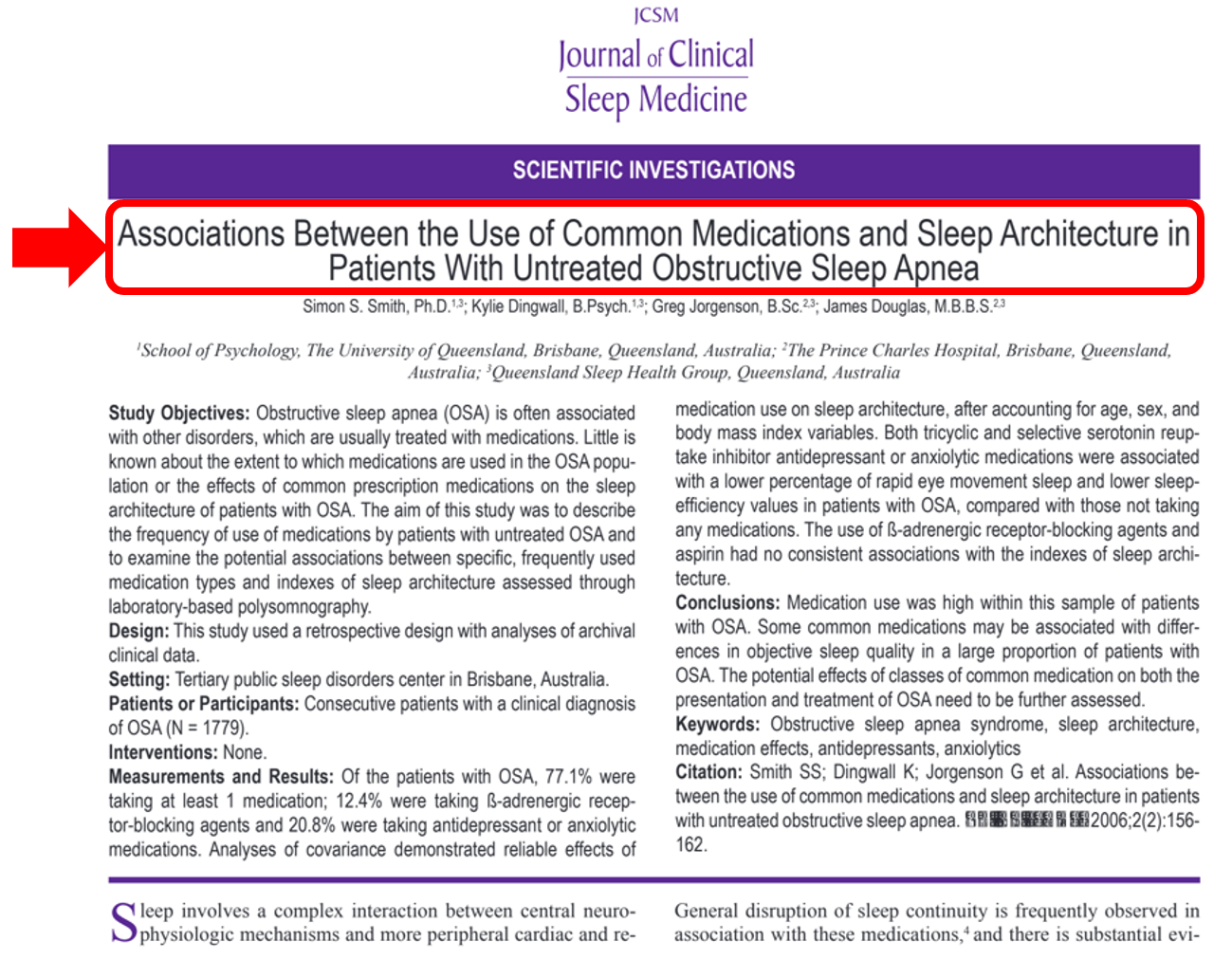Looking for Expert-Level VA Claim Answers?📱Call Us Now! 737-295-2226
After extensive research and analysis into Nexus Letter Doctors, VA Claims Insider built this list of the Top 5 Doctors Who Write VA Nexus Letters for Veterans, along with “pros” and “cons” associated with each company.
Veterans can use these 3 tips to find the best nexus letter doctors, which will ensure you have the greatest chance to service connect your VA disabilities.
In this post, VA disability expert Brian Reese will provide veterans with 3 useful strategies to search, find, screen, and hire the Top 5 Nexus Letter Doctors online.

What’s the bottom line?
Well, frankly, not all medical professionals are capable of writing a highly probative Medical Nexus Letter with all the required elements necessary to help a veteran prove VA service connection under the law.
So, if you’re looking for the best doctors who write VA nexus letters for veterans, you can use these tips to help make the right decision for you and your family.
Table of Contents
List of Doctors That Write Nexus Letters for Veterans
#1 VA Nexus Letter Doctor: Telemedica
Pros: High-quality firm with extensive experience helping over 20,000 veterans to date with credible Nexus Letters. Serves veterans nationwide and in Puerto Rico. Also offers virtual exams, rush services, DBQs, rebuttal letters, and recurring mental health therapy. Veterans can connect with a licensed provider in their state from a mobile device, anytime, anywhere with Telemedica’s simple and easy-to-use telehealth platform.
Cons: Lack of specialty medical doctors. Not available for in-person evaluations.
Location: Austin, Texas, but services veterans nationwide via telehealth.
*Disclaimer: Telemedica is part of our preferred provider network and VA Claims Insider Elite Members can get Nexus Letters and DBQs at 61-67% off Telemedica’s published rates.
#2 Nexus Letter Doctor: American Medical Experts
Pros: High-quality firm with decades of experience helping veterans with Nexus Letters. Also offers complete case reviews, in-person witness testimony, independent medical opinions, and independent medical examinations from its network of specialty medical providers. Also offers rush services for a higher fee.
Cons: Expensive. Can be $2,000 or more for a complete case file review and Nexus Letter. $695 (to start) for a complete case review and $995 (to start) for an expert witness report. See fee schedule HERE.
Location: Nationwide network of independent medical professionals.
#3 Nexus Letters for Veterans Firm: Valor 4 Vet
Pros: Quality medical documentation supporting veteran disability claims with access to specialty medical providers. Audiologist and Podiatrist access.
Cons: Can get expensive quickly. $150 records review per condition. $400 fee for active duty or discharged in the last 12 months medical record review. $150 per DBQ. $600 per nexus letter. $900 for a combined exam, DBQ, and nexus statement for mental health conditions.
Location: Waverly, Ohio, but can service veterans in numerous locations.
#4: Nexus Letter Doctor: Dr. Craig N. Bash
Pros: Very experienced, highly-specialized, and offers in-person exams to include Independent Medical Examinations and expert witness testimony.
Cons: Can be very expensive. $1,500-$2,000 per nexus letter. Additional fees for medical records reviews and additional services, such as in-person testimony for an appeal.
Location: Bethesda, Maryland
#5 VA Nexus Opinion Doctor: Dr. David Anaise
Pros: Very experienced, high-specialized, and dual-hatted as a Medical Doctor (MD) and an accredited VA attorney.
Cons: Can be very expensive. $1,500+ per nexus letter. Provided IMO and representation for sleep apnea on more than 100 cases with very high success rate. Does not offer physical exams.
Location: Tucson, Arizona.
What is a VA Nexus Letter?
A VA Nexus Letter is an evidence-based document prepared by a qualified medical professional, such as a PA-C or an MD, that helps to establish a connection between the claimed in-service disease or injury and the veteran’s current disability.

A Nexus Letter often serves as the “linchpin” piece of evidence to help a veteran get their VA disability service-connected.
Why are nexus letters so effective at proving service connection?
Because they can influence the C&P examiner’s medical opinion, as well as the VA Rating Official’s final disability decision due to the competent and credible medical nexus evidence provided in the VA Nexus Letter.
A veteran may also obtain a nexus letter for a secondary condition, which is an evidence-based document prepared by a qualified medical professional, such as a PA-C or an MD that helps establish a connection between the current primary disability and the claimed secondary condition for secondary service connection.
Veterans can also watch this step-by-step video tutorial called “What is a Medical Nexus Letter?”
Tip #1: Search online and review the doctor’s credentials
First, you need to do some research on the company or VA nexus letter doctors to ensure they have the appropriate medical credentials.
Use Google to search for the doctor by name and location and read their reviews.
You can also search for “Nexus Letter Doctors Near Me” especially if you require an in-person medical examination, such as a Range of Motion (ROM) test with a goniometer.
While any qualified medical professional “can” write a medical nexus letter for a veteran, that doesn’t mean they “should.”
At VA Claims Insider, we recommend finding an experienced medical professional, who at a minimum, is a certified Physician’s Assistant (PA-C).
Even though veterans can technically use a Nurse Practitioner (NP) to do a VA Nexus letter, you need to be thinking about which qualified medical professional will give you the most weight before the C&P examiner and the VA Rater, keeping in mind the importance of competency and credibility of the evidence-based written medical documentation.

For example, an NP attends nursing school while a PA attends medical school or other center of medicine.
Thus, a PA will generally have more education and training, in which they focus on the biologic and pathologic components of health, and practice assessment, diagnosis, and treatment.
Of course, a veteran may also choose to hire a Medical Doctor (MD) or other specialty physician, although this usually comes at a premium price.
In our experience working over 5,000 VA disability claims to date, we have yet to see a single instance where an MD’s nexus letter trumped a PA’s nexus letter.
Why?
Because the best VA Nexus Letters are LESS about the doctor’s credentials and MORE about the quality of the content, mainly the records reviewed, medical research studies cited, case law precedent examples, and the nexus statement for service connection.
Tip #2: Quality check one of the doctor’s previous VA nexus letters
Next, we recommend asking the company or doctor for a VA nexus letter sample so you can review it for competency and credibility.
This is very important because you must ensure the nexus letter contains the appropriate content to help further support a veteran’s medical evidence of record.
According to Brian Reese, VA disability benefits expert, a veteran must ensure their independent medical opinion (aka, Medical Nexus Letter) has high probative value:
“For a credible Medical Nexus Letter to have high probative value in support of a veteran’s claim for VA disability benefits, it should be thorough, factual, and include convincing, evidenced-based rationale. The nexus letter should also include all records reviewed as well as relevant medical research reports and BVA case law decisions to help support the doctor’s independent medical opinion. The strongest nexus letters include a nexus statement with the words “at least as likely as not” assuming the independent medical provider believes the veteran’s condition was caused or aggravated by his/her active duty military service.” – Brian Reese – Founder & CEO of VA Claims Insider
How to Write a Winning VA Nexus Letter
- The best medical nexus letters are short, factual, and evidence-based
- The doctor must cite applicable medical research and case law to back up their opinions
- At a minimum, the doctor must express their nexus opinion for service connection with “at least as likely as not” (if warranted based upon the medical evidence, medical research, and/or case law)
- The nexus letter must be signed and dated, and list the doctors’ medical credentials
How VA Nexus Letters Can Help WIN Your VA Disability Claim
The best nexus letters are short, factual, evidence-based, and clearly explain WHY and HOW the doctor reached his/her nexus conclusion for service connection.
A great nexus letter can be as short as one page or as long as 25 pages.

In our experience, a shorter nexus letter is better and more actionable for the VA Rater, so long as it meets the four essential parts of a VA nexus letter listed below.
Why?
Because VA Raters are very busy people, so the easier you can make it for them to read and analyze, the better chance you have of getting your disability service connected.
A proper VA nexus letter should be as brief as possible while stating facts and evidenced-based rationale, which leads to a proper medical nexus opinion and conclusion, and must include the following four parts:
Nexus Letter Part #1: “After a review of the veterans medical and personnel records.”
The nexus letter doctor should reference any medical or personnel records reviewed, such as service treatment records, VA medical records, private treatment records, DD 214, or any other existing evidence of record.
VA Nexus Letter Part #2: The doctor must offer supporting evidence-based rationale.
The best nexus letter doctors list any medical research studies, scientific journals, or previous BVA case law precedent that describes the medical etiology of the veteran’s condition.
This is very important for direct service connection, secondary service connection, and presumptive service connection because medical etiology, also known as a “showing of causation,” is very important to help a veteran prove service connection.

Nexus Letter Part #3: “It is my professional opinion that it is [at least as likely as not].”
The nexus letter doctor must write one of five statements of likelihood in the medical nexus letter in order to help the veteran prove service connection.
VA Nexus Letter Part #4: The doctor must provide credentials, such as job title or specialty.
The doctor must sign and date their name, in addition to listing his/her medical credentials, such as, Oncologist, Orthopedic Surgeon, Sleep Specialist, PA-C, MD, etc.
This is a very important part of the VA nexus letter because it helps the VA Rating Official determine if it’s credible and competent for rating purposes.
See also our post, “Example of a Nexus Letter,” here.
The 5 Statements of Likelihood for a VA Nexus Letter
When asked to give an independent medical opinion as to whether a veteran’s condition is related to a specific incident during military service or another service-connected disability, the nexus letter doctors must express his/her medical nexus opinion with one of the following 5 statements of likelihood:
#1 “Is due to” (100% sure)
The nexus opinion “is due to” means the doctor is 100% certain that a veteran’s condition was caused or made worse by active duty service or by another service-connected disability for secondary service connection.
#2 “More likely than not” (greater than 50%)
The nexus opinion “more likely than not” means the doctor believes there is a greater than 50% chance that a veteran’s condition was caused or made worse by active duty service or by another service-connected disability for secondary service connection.
#3 “At least as likely as not” (equal to 50%)
The nexus opinion “at least as likely as not” means the doctor thinks there is an approximate even balance of medical evidence for and against, and thus, there is a 50/50 chance that a veteran’s condition was caused or made worse by active duty service or by another service-connected disability for secondary service connection.
This is the minimum nexus statement that will help a veteran prove service connection, because the Benefit of the Doubt always goes to the veteran according to VA law.
When all things are equal, tie goes to the veteran.
#4 “Less likely than not” (less than 50%)
The nexus opinion “less likely than not” means the doctor thinks there is a less than 50% chance that a veteran’s condition was caused or made worse by active duty service or by another service-connected disability for secondary service connection.
This statement will likely cause the VA Rater to deny service connection, unless one or more other medical opinions carry more weight or contain different medical opinions.
#5 “Is not due to” (0% chance)
The nexus opinion “is not due to” means the doctor thinks there is a 0% chance that a veteran’s condition was caused or made worse by active duty service or by another service-connected disability for secondary service connection.
This statement will cause the VA Rater to deny service connection.
Tip #3: Ask for references from previous veteran clients
Finally, ask the nexus letter doctors who supposedly write nexus letters for veterans to send you at least three references from previous veteran clients.
You’ll want to ask the previous clients about the competency and credibility of the doctor’s nexus letter and whether it helped the veteran prove service connection.
This would also be a good time to understand the full cost of the nexus letter documentation to ensure its within your budget range.
Some nexus letter doctors charge up-front fees for medical exams and medical nexus letters while others charge fees only after the evidence is successful in a veteran’s disability case before the VA.
What is a “Medical Opinion” versus an “Independent Medical Opinion?”
A Medical Opinion (MO) and an Independent Medical Opinion (IMO) are two very different things.
A Medical Opinion (MO) comes from the examining physician at your C&P exam, whereas an Independent Medical Opinion (IMO), also known as a Medical Nexus Letter, can come from any private medical provider, and is used to help a veteran prove VA service connection.
VA “Medical Opinion” Definition:
A “Medical Opinion” is a type of opinion requested by the VA rating activity and is provided by the C&P examiner for purposes of determining whether a claimant’s condition warrants service connection.
VA “Independent Medical Opinion” Definition:
An Independent Medical Opinion (IMO) is a type of “advisory” medical opinion that can be obtained from one or more recognized medical experts who are NOT VA employees.
An “Independent Medical Opinion” is synonymous with “Medical Nexus Letter” or “Medical Nexus Opinion” in that, they all refer to the same thing.
Doctors Who Write VA Nexus Letters: Frequently Asked Questions (FAQs)
Here are some Frequently Asked Questions and answers for veterans looking to find the best doctors that write nexus letters for veterans:
Will VA Doctors Write Nexus Letters for Veterans?

No, most VA doctors will NOT write nexus letters for veterans.
Because VA doctors are “hired in the service of VA,” according to VA regulation, they are NOT appropriate medical experts for the purposes of providing an independent medical opinion.
Why?
Because they are not considered “independent.”
Most veterans will need to find a private doctor to complete a VA nexus letter for you.
Furthermore, according to 38 CFR 3.328, contracted C&P examiners from private companies who perform examinations during the usual claims process are also considered as “hired in the service of VA,” and therefore, are NOT appropriate medical experts for the purposes of providing an independent medical opinion.
What is the Best Way to Find Doctors Who Write VA Nexus Letters?
The best way to find doctors that write nexus letters for veterans is to search online using Google, read reviews, screen candidates, obtain a sample nexus letter, and ask for references.
In our experience helping over 5,000 veterans obtain winning VA nexus letters, not all medical professionals are capable of writing a credible, evidence-based nexus letter with all the required elements necessary to help the veteran prove service connection under the law, so make sure you do your homework!
How Much Does a Nexus Letter Cost?
Nexus letters can cost anywhere from a few hundred dollars to $10,000 or more, depending upon the credentials and experience of the doctor.
There are some companies who offer nexus letter services for free up-front, and then charge a percentage of the increase a veteran receives in their monthly VA compensation amount.
Do you want to pay a flat fee up-front or would you rather pay a percentage of your monthly increase if the nexus letter helps you win your disability claim and get a higher VA rating?
It’s really a matter of preference for the veteran; you can pay now or pay later.
What is a Nexus Letter for Secondary Condition?
A nexus letter for a secondary condition is an evidence-based document prepared by a qualified medical professional, such as a PA-C or an MD, that helps to establish a connection between the current primary disability and the claimed secondary condition.
They are especially useful for helping a veteran obtain additional medical nexus evidence to prove secondary service connection.
How Can I Get a VA Nexus Letter for Sleep Apnea?
Sleep Apnea is one of the most difficult VA disabilities to get service connected, especially if you weren’t diagnosed with sleep apnea before leaving active duty service.
However, veterans can win their VA claim for sleep apnea, especially with a nexus letter for sleep apnea secondary to another service-connected disability rated at 0% or higher.
Click HERE for a list of more than 50 possible Sleep Apnea Secondary Conditions.
What is the “Standard of Proof” for a VA claim?
Every substantive or procedural factual matter in a VA disability claim must have a standard of proof whether stated explicitly or not.
Standard of proof specifies the degree of persuasion or confidence in the evidence, which is required in order to find a fact proven to the minimum standard of “at least as likely as not.”
The application of standard of proof in a VA disability compensation claim is “qualitative,” not “quantitative.”
The question is weight or persuasiveness of the evidence and NOT the number of items of evidence.
Therefore, we tell veterans that LESS is MORE when fighting for VA benefits.
Another key concept is that evidence is not necessarily in “relative equipoise” when the number of acceptable items of evidence tending to support a fact is equal to the number of items tending to not support a fact.
It always comes down to the weight or persuasive of the evidence, which is why a VA nexus letter from a private provider can help a veteran prove service connection.
What is the definition of “Relative Equipoise” for my VA disability claim?
Relative Equipoise means that in the totality of the evidence, a fact is “at least as likely as not.”
For your VA disability claim, this means there’s an equivalence in the evidence, or approximate balance, which means 50% of the evidence is positive and 50% of the evidence is negative, and in accordance with the Reasonable Doubt Rule, the tie always goes to the veteran.
For example, if the C&P examiners medical opinion is “less likely” and the independent medical opinion says “more likely,” there is an approximate equality in the evidence, assuming both reports are competent and credible for rating purposes.
Now, in our experience, VA Rating Officials very rarely apply this principle correctly, and often deny VA benefits when clearly the evidence was in “relative equipoise.”
The main types of medical assessments for VA purposes are diagnoses, opinions, examination, and history.
What is meant by “Diagnoses” for a VA claim?
Diagnoses are medical assessments made typically to identify injury or disease.
They are typically the result of an examination and involve the application of the physician or examiner’s knowledge, experience, and judgment to a set of facts.
What are considered “Opinions” in VA disability claim?
Opinions are medical assessments on questions such as etiology or onset.
They may or may not be accompanied by a contemporaneous examination.
However, like an examination, opinions involve the application of the examiner’s knowledge, experience, and judgment to a set of facts.
What is an “Examination” for my VA disability claim?

An examination for VA purposes involves the collection of relevant medical facts (history, clinical observations, or measurements and, potentially, lab testing) by a medical professional.
This is also called the C&P exam or Compensation and Pension examination.
What does “History” mean for my VA disability compensation claim?
History is a verbal recounting or written record of relevant life events, habits, routine, symptoms, and/or treatment.
It most often comes from the patient’s oral report and/or review of medical records.
Other materials could also be relevant to a physician’s or examiner’s understanding of relevant medical or psychological history.
What is the VA’s “Reasonable Doubt Rule?”
The reasonable doubt rule, also known as the Benefit of the Doubt Doctrine, means that the evidence provided by the claimant/beneficiary (or obtained on his/her behalf) must only persuade the decision maker that each factual matter is “at least as likely as not.”
It is the defined and consistently applied policy of the VA to administer the law under a broad interpretation, consistent, however, with the facts shown in every case.
When, after careful consideration of all procurable and assembled data, a reasonable doubt arises regarding service origin, the degree of disability, or any other point, such doubt will be resolved in favor of the claimant.
In Gilbert v. Derwinski, the United States Court of Appeals for Veterans Claims (CAVC) noted that an equipoise decision is “necessarily more qualitative than quantitative; it is one not capable of mathematical precision and certitude. Equal weight is not accorded to each piece of material contained in the record; every item of evidence does not have the same probative value.”
CAVC further likened the reasonable doubt rule as akin to the principle in baseball that the “tie goes to the runner.”
What is “Competent Evidence” in a VA disability claim?
Competent evidence refers generally to evidence offered from a qualified source.
A determination of evidentiary competency involves analysis of whether a person offering evidence is qualified to establish a matter.
What is “Competent Medical Evidence” in a VA claim?
Competent medical evidence means evidence provided by a person who is qualified through education, training, or experience to offer medical diagnoses, statements, or opinions.
Competent medical evidence may also mean statements conveying sound medical principles found in medical treatises.
It would also include statements contained in authoritative writings such as medical and scientific articles and research reports or analyses.
What is “Competent Lay Evidence” in a VA compensation claim?
Competent lay evidence means any evidence not requiring that the proponent have specialized education, training, or experience.
Lay evidence is competent if it is provided by a person who has knowledge of facts or circumstances and conveys matters that can be observed and described by a layperson.
You DESERVE a HIGHER VA rating. We CAN HELP.
Take advantage of a VA Claim Discovery Call with an experienced Team Member. Learn what you’ve been missing so you can FINALLY get the disability rating and compensation you’ve earned for your service.
About the Author

Brian Reese
Brian Reese is a world-renowned VA disability benefits expert and the #1 bestselling author of VA Claim Secrets and You Deserve It. Motivated by his own frustration with the VA claim process, Brian founded VA Claims Insider to help disabled veterans secure their VA disability compensation faster, regardless of their past struggles with the VA. Since 2013, he has positively impacted the lives of over 10 million military, veterans, and their families.
A former active-duty Air Force officer, Brian has extensive experience leading diverse teams in challenging international environments, including a combat tour in Afghanistan in 2011 supporting Operation ENDURING FREEDOM.
Brian is a Distinguished Graduate of Management from the United States Air Force Academy and earned his MBA from Oklahoma State University’s Spears School of Business, where he was a National Honor Scholar, ranking in the top 1% of his class.




